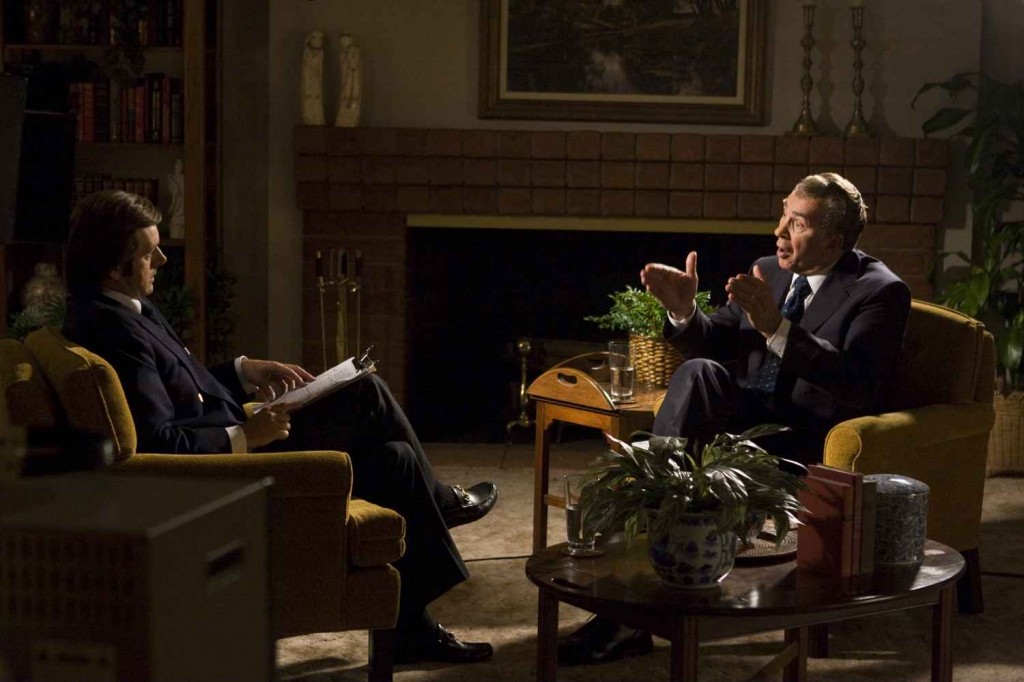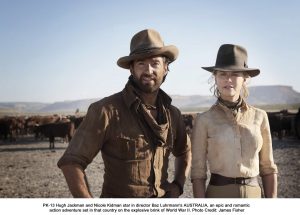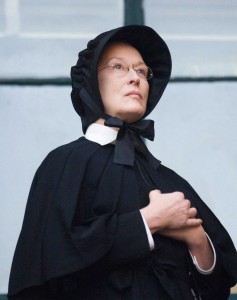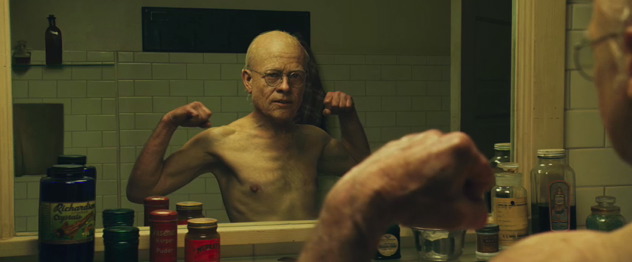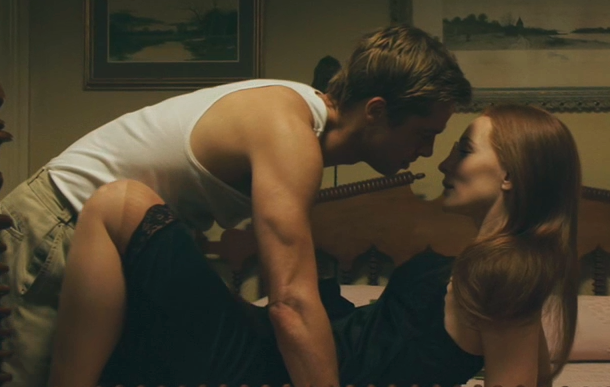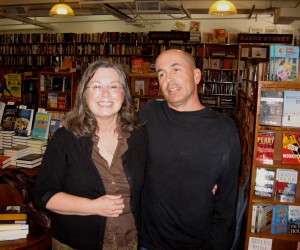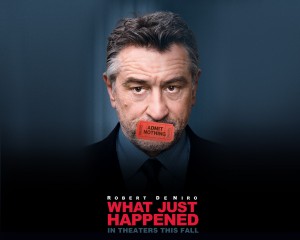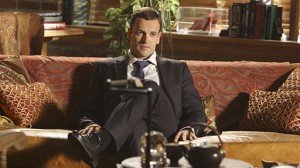When I told a few friends I was going to a screening of Frost/Nixon, they all asked, “Why?” I said, “Because I think it looks interesting.” They said, “Ugh, it’s two men talking. Boooooring.”
I’m happy to say it isn’t dull as dirt. Frank Langella, Michael Sheen and director Ron Howard make the film crackle with tension. Richard Nixon and David Frost’s duel is just a more verbal version of Jim Braddock and Max Baer’s fight from Howard’s Cinderella Man. Like that boxing match, you have a heavyweight sparring with an underdog who proves to be much more pit bull than anyone expected.
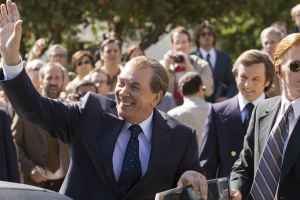 A quick montage at the start of the movie fills in anyone who’s been living on Mars on the Watergate scandal and fallout, including Nixon’s resignation and Ford’s pardon. We see Frost watching the televised resignation speech, practically drooling over the audience it garnered. He decides to woo Nixon for an interview strictly for ratings at first. Soon, pressure mounts from his peers for him to elicit an apology from the former president. But Nixon is a formidable opponent, trained in public speaking and how to be “presidential” while Frost is disdainfully referred to by some as “just a talk-show host.” We see Frost training for his big fight by immersing himself in the minutiae of Nixon’s life while struggling to land financial backers for his show (Nixon’s fee alone was $600,000). This all leads up to the movie’s main event on April 22, 1977—the final day of interviews during which Frost would pin Nixon into a corner about his shady Watergate dealings.
A quick montage at the start of the movie fills in anyone who’s been living on Mars on the Watergate scandal and fallout, including Nixon’s resignation and Ford’s pardon. We see Frost watching the televised resignation speech, practically drooling over the audience it garnered. He decides to woo Nixon for an interview strictly for ratings at first. Soon, pressure mounts from his peers for him to elicit an apology from the former president. But Nixon is a formidable opponent, trained in public speaking and how to be “presidential” while Frost is disdainfully referred to by some as “just a talk-show host.” We see Frost training for his big fight by immersing himself in the minutiae of Nixon’s life while struggling to land financial backers for his show (Nixon’s fee alone was $600,000). This all leads up to the movie’s main event on April 22, 1977—the final day of interviews during which Frost would pin Nixon into a corner about his shady Watergate dealings.
Langella brings Nixon roaring back to life and thankfully does so without prosthetics. He relies on his talent to portray a man too proud to say sorry but too burdened if he didn’t. The actor does use that familiar guttural voice which calls to mind all the Nixon (and Jimmy Stewart) impressions I’ve ever heard. But it’s not Langella’s fault Nixon sounded like that and after a while I got used to it.
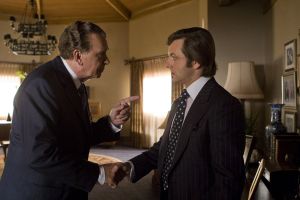 Sheen’s performance, though, is my favorite in the film. As he readies his slingshot for his Goliathan opponent, we can see the insecurity and vulnerability beneath the perennial grin and slick TV-host veneer. Sheen actually made me wonder at times if Frost would be up to the task though I already knew the outcome. Universal Pictures has decided to submit both actors for Best Actor Academy-Award consideration and I hope Langella doesn’t overpower Sheen, who has the less showy but more difficult role.
Sheen’s performance, though, is my favorite in the film. As he readies his slingshot for his Goliathan opponent, we can see the insecurity and vulnerability beneath the perennial grin and slick TV-host veneer. Sheen actually made me wonder at times if Frost would be up to the task though I already knew the outcome. Universal Pictures has decided to submit both actors for Best Actor Academy-Award consideration and I hope Langella doesn’t overpower Sheen, who has the less showy but more difficult role.
Among the solid supporting cast, Kevin Bacon, as Nixon’s steely Chief of Staff Jack Brennan, was a head above the rest for me. You might be quick to label him a jerk until you glimpse the heart beating beneath the surface. Bacon made me feel that of the millions who were disappointed and hurt by Nixon’s Watergate involvement, Brennan was the one who took it hardest.
In bringing Frost/Nixon to the screen, writer Peter Morgan (who also wrote the play) and Howard were successful where John Patrick Shanley was less so with Doubt—opening up a play to make it more cinematic. Doubt the movie comes across like a filmed play (see my review here), but Howard said in the Q & A I attended that he was determined to have Sheen and Langella break the rhythm of the stage dialogue they’d already performed many times in London and on Broadway. He also employs a faux documentary style with lots of cross-cutting between scenes and interviews and archival news footage. Howard can sometimes be too safe for me but he does really sharp work here, taking a story whose ending is already familiar to a whole generation and making it compelling and fresh again.
(Limited Release, December 5)
Rating: Good
SCRIPT GIVEAWAY: On Wednesday, December 3, at noon PT, I’ll be giving away Frost/Nixon scripts. At that time, I’ll post a trivia question about Nixon and the first 5 subscribers who leave the correct answer in the comments section will be emailed a PDF version of the script. You have to be a subscriber to be eligible so even if you’re the first person to leave the correct answer but you’re not on the list, you will not get a script. I never spam so if you haven’t subscribed but want to participate in future giveaways, do it now!

